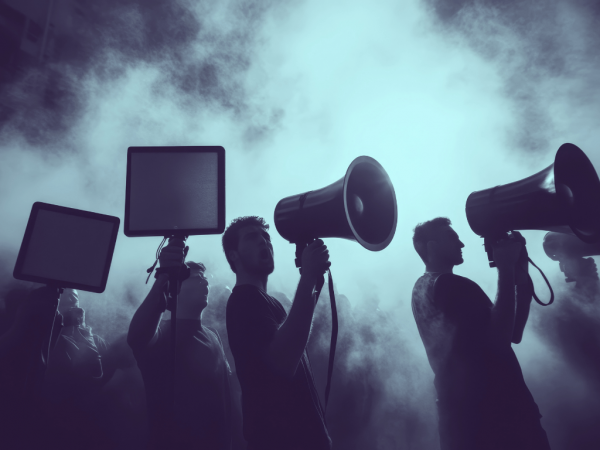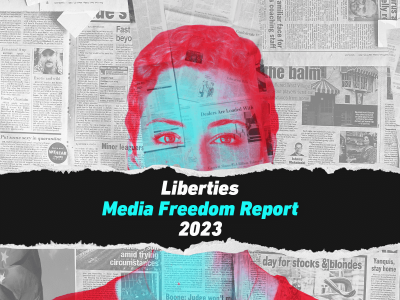
The primary adversary of any authoritarian regime is the truth. Dictators worldwide utilize propaganda, censorship and large-scale disinformation as key strategies to maintain their power, carefully manipulating narratives about both historical and current events. By exercising strict control over information, they suppress criticism, alter historical accounts, and create a narrative that glorifies their actions. This distortion of truth serves not only as an internal mechanism for control but also as a significant tool in international relations, raising concerns for the global community.
In the current global landscape, authoritarian regimes are manipulating reality to hide human rights abuses and project a facade of democracy. These governments are actively penalizing and restricting independent media, thereby limiting the population’s access to information. For instance, in Russia alone, nearly 150 independent media outlets have been banned between 2014 and 2024. By co-opting human rights language, authoritarian regimes attempt to legitimize their violations, framing oppressive measures as necessary for national security, public safety or for the protection of the rights of others. However, these restrictions fail the fundamental tests of necessity and proportionality in a truly democratic society. Additionally, dissent is being criminalized; activists, journalists, and politicians are labeled as foreign agents, "undesirable," or even categorized as terrorists and extremists. This labeling has dire consequences, leading to fines, arrests, forcing these individuals to flee their countries and continue their work from abroad. In 2024, Russia, along with Belarus, China, Myanmar, and Israel, ranked among the top five countries with the highest number of journalists in detention, highlighting the urgent need for international attention and advocacy for freedom of the press, freedom of expression and association.
Regimes are targeting not just professional journalists and opposition voices, but also community-generated content - for example, social media posts written by ordinary people. In 2024 alone, Russia’s censorship agency, Roskomnadzor, blocked over 800,000 information resources, alongside thousands of criminal and administrative cases against individuals for allegedly spreading "disinformation" regarding what authorities refer to as the "special military operation" and for "discrediting" the Russian army. Although the Russian-Ukrainian armed conflict is one of the most thoroughly documented in history, the Russian government is working to hinder the spread of accurate information regarding the war. Disinformation is spread not only through state-controlled media aimed at a domestic audience but also by Russian state officials speaking from UN platforms, where the western States are simply accused of being schizophrenic.
Authoritarian regimes do not only suppress access to information about current political developments; they also alter the narrative surrounding historical events. These regimes manipulate the past by silencing the victims of previous abuses, denying them official acknowledgment of the harm they suffered, and erasing the memory of the crimes committed against them. Over the past two decades, Russia has actively reshaped how history is presented. Continuing the Soviet practice of rewriting World War II narratives —referred to by the regime as “The Great Patriotic War” — they overlook significant events that occurred before 1941, such as the Ribbentrop-Molotov Pact. To assert control, modern Russia intensifies its efforts by distorting memories of the mass repressions under the communist regime. They suppress discussions of past atrocities through advanced disinformation tactics online. At the same time, Russian troops in Ukraine carry out the same violations of international law that their propaganda alleges to denounce in relation to Nazism.
Criminal charges related to the “rehabilitation of Nazism” involve any alternative views on the Soviet Union's involvement in World War II. It is especially risky to openly address the collaboration between the Soviet Union and Nazi Germany. By distorting historical accounts and silencing opposition to the government’s approved narrative, propaganda has forged a dangerous rationale for Russia’s military actions across the region. This stifling of discussion not only compromises historical truth but also endangers the core values of human rights and freedom of speech.
Poland has firsthand experienced the Soviet-imposed suppression of historical truth during the communist period when World War II events were portrayed according to the Soviet narrative. This stifling of truth and the assault on freedom of expression and other human rights deeply impacted Polish society but also emboldened brave lawyers and journalists to document and expose the crimes of the communist regime, including unlawful detentions and violence against opposition figures. Amid the imposition of martial law in 1982, the Helsinki Committee emerged as an underground initiative to seek justice and advocate for democracy and human rights. Following Poland's successful shift to democracy, the Helsinki Committee’s efforts transformed into the Helsinki Foundation for Human Rights (HFHR), which continues to promote human rights and the rule of law in Poland.
HFHR's work extends beyond Poland. The NGO stands in solidarity with activists, human rights defenders, and journalists facing oppression in Russia, Belarus, and the broader region. These efforts are crucial in combating impunity, revealing the truth about human rights violations, and achieving justice for the victims whose lives have been devastated. Confronting the disinformation propagated by authoritarian regimes is key—not only for holding these governments accountable but also for ensuring that victims of torture, wrongful detentions, forced disappearances, and extrajudicial killings can assert their right to the truth - that their pain and suffering are heard and acknowledged.
In light of the evolving geopolitical landscape and the potential for peace agreements in Ukraine, sustainable peace and security in Europe depend on a comprehensive and factual narrative about what happened and who was responsible for the atrocities committed.
Seeking truth goes beyond simple historical accuracy; it is fundamentally tied to justice, human rights, and the essential values of a democratic society. In an era plagued by misinformation and distortions of history, we share a collective duty to defend truth, protect those who have suffered, and resist the escalation of authoritarianism.
Ana Farifonova - has extensive experience in monitoring access to justice and reparation for victims of international crimes in Ukraine. As a journalist and researcher, she followed Ukrainian efforts to ensure accountability of the perpetrators, provide support for the victims, and develop transitional justice strategy. In November 2022, Ana joined HFHR in Poland, where she was instrumental in shaping the activities of the NED-supported documentation work focused on collecting testimonies from Ukrainian refugee victims and survivors. Since October 2023, Ana became the coordinator of the project, overseeing all aspects of the project implementation. Currently she is working to further expand her expertise by pursuing the Executive Master in International Law in Armed Conflict at the Geneva Academy of International Humanitarian Law and Human Rights.
